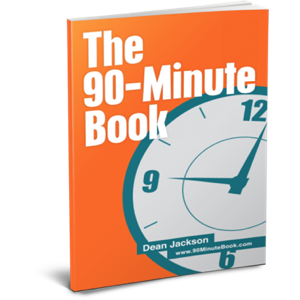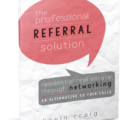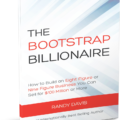Everyone should seize the chance to compose a book because it can pay off in many ways!
Do you want to become well-known? Have you always desired to express your wisdom to others, yet not been sure how to begin or scared of criticism?
If you look at these words, you probably have something to share with the world and wish to be listened to. The most effective approach to communicating your narrative to the public is to create a book.
Reason #1: Writing a book is an excellent way to share your passion, knowledge, and expertise.
Are you passionate about a topic? Do you possess a knowledge base that others might find beneficial? Penning a book will allow you to express your point of view and expertise to the public. You’ll have a chance to tell your story. You can communicate your identity and what motivates you.
Your thoughts could potentially be more valuable than you realize.
Do we consider our ideas valuable? How do we decide if they are really worth something? The first step is recognizing an idea as such. You might be startled by what naturally appears or how much energy and labor were wasted before this acknowledgment occurred. At times, it is a great idea to jot down any ideas during the day that you cannot market and use them to create a book.
You can have an impact on the world by authoring your own book. You will be able to share tales that are significant and deserve recognition.
Thoughts are our path to the future- they offer us optimism for what circumstances could be in the long term – more desirable than the present state of affairs.
It may be simpler to understand complicated material when you gain knowledge through reading on the topic than when you are listening. Authors gain just as much from writing and publishing a book as readers gain from reading it. An outstanding illustration is a way to become recognized by having their name and face associated with a book. This can open the doors to more public speaking opportunities and additional business prospects.
Books provide a strong platform to let people know of your expertise and knowledge. You will have the chance to be creative and gain a better sense of yourself by writing about whatever is most important to you.

FREE BOOK
Discover the 5 Compelling Book Titles Types that create an ‘I Want That…’ response.
Reason #2: Books can be great marketing tools for other businesses.
Every company requires promotion, but not every target market is enticing. If you are looking to increase your crowd at an eatery or cafe, a great way to do that is to put into place a creative book-based approach to promotion. This will make your customers enthusiastic and excited about the food and beverages available there.
Trust me, it’s a fantastic method for getting your point across.
You can make money from it.
You’ll attract more followers and customers too!
Here are just a few of the advantages that come with self-publishing a book. By the end of this blog post, I will have provided five reasons you should begin drafting, conclude crafting or include writing a book in your checklist of things to do.
Nowadays, books are becoming an increasingly popular way to be entertained. Reading books offers a release from the everyday reality we experience and allows us to explore ideas and thoughts that may differ from what we’re used to. This pattern isn’t just for amusement – it also offers advertising chances for companies that want to succeed! When you are publicizing your company using promotional materials, you do not need to use online marketing methods since these pieces of writing will bring in customers without them realizing it until it is too late.
My strongest suggestion to any fellow entrepreneurs is to make the time to compose a book.
Books are an effective marketing resource. You can employ images in many distinct ways and settings to advance your business objectives without spending a fortune (a flyer, perhaps). Furthermore, you can craft exquisite hardcover art collectibles to be cherished by individuals across the globe.
In addition, books are a great way to show readers more about your organization.
Not only can these resources increase your knowledge, but they can also allow you to bring in more customers and get a nice compensation.
Choosing an appropriate font and design can elevate your book to more than just a source of amusement. Creating a product could be a profitable business venture for other businesses, so investing in the entire production process could be worth it!
Reason #3: A book will help you become more well-known in the industry or field you’re writing about.
Publishing a book can help to establish you as an authority on your subject, and in the right hands, it may even be life-changing for a reader.
There is a common opinion that the validity of a book’s content is true regardless of its author. This implies that others can recognize your expertise in a specific field, demonstrating your determination to complete what you have stated.
Composing a book will give you an enhanced understanding of your discipline and more respect from your peers.
People will come to you for advice when they realize that you are a specialist in your particular area of expertise and that your wisdom is something only you can offer. It’s like being a god among men!
Composing a novel is not simple, but the happiness you’ll experience when completing one could make all those hours spent formulating your book worthwhile!
A book can be the stepping stone to achieving success.
A book is like a ticket to the top! If you possess an industrious work ethic, are determined, and have a strong-minded attitude, then anyone can attain accomplishment in any sector.
The impact of written communication cannot be overstated, and for those who have the skill to do so, it can ensure that they take control of any specific area or specialty.
How to really write a book
Phase 1: Getting started
We all have to start somewhere. With writing a book, the first phase is made up of four parts:
1. Decide what the book is about
Good writing is always about something. Write the argument of your book in a sentence, then stretch that out to a paragraph, and then to a one-page outline. Once you are finished, produce a table of contents to assist you in constructing the text, and subdivide each chapter into several subsections. Consider your book as having a start, middle, and conclusion. Anything more complicated will get you lost.
2. Set a daily word count goal
John Grisham started writing when he was a lawyer and a dad to a newborn baby – he had a lot of responsibility. Despite this, he would rise an hour or two before usual each morning and write one page daily. After a couple of years, he had a novel. A page a day is only about 300 words. You don’t need to write a lot. You just need to write often. Each day, establish an objective to strive toward. Keep your goals manageable so you can accomplish them each day, thereby getting a sense of progress.
3. Set a time to work on your book every day
Consistency makes creativity easier. A daily timeline is essential for completing a book project, as that is the only way to get your work done. You are welcome to take a day off, but please plan it in advance. Do not allow a due date to slip by; do not make excuses for yourself too quickly. Having a set writing time and a deadline for each day will ensure that you don’t need to ponder when to work on your writing. When it’s time to write, it’s time to write.
4. Write in the same place every time.
The location is unimportant, whether it’s a workstation, an eatery, or a dining room. It should be separate from any other activities you undertake. Designate a specific area for writing work that brings about a feeling of readiness when you enter it. This should serve as a reminder of your promise to complete this book. The objective here is to bypass the thinking process and start writing straight away.
Phase 2: Doing the work
Now, it’s time to get down to business. Here, we are going to focus on the next three tips to help you get the book done:
5. Set a total word count
Begin with the end in mind. Once you launch into writing, record how many words your book will contain. Consider breaking up each chapter into about 10,000 words apiece. Here are some general guiding principles:
- 10,000 words = a pamphlet or business white paper. Read time = 30-60 minutes.
- 20,000 words = short eBook or manifesto. The Communist Manifesto is an example of this, at about 18,000 words. Read time = 1-2 hours.
- 40,000–60,000 words = standard nonfiction book/novella. The Great Gatsby is an example of this. Read time = three to four hours.
- 60,000–80,000 words = long nonfiction book / standard-length novel. Most of Malcolm Gladwell’s books fit in this range. Read time = four to six hours.
- 80,000 words–100,000 words = very long nonfiction book / long novel. The Four-Hour Work Week falls in this range.
- 100,000+ words = epic-length novel / academic book/biography. Read time = six to eight hours. The Steve Jobs biography would fit this category.
6. Give yourself weekly deadlines
You need a weekly goal. Make it a word count to keep things objective. Commemorate how far you have come while being earnest about how much more needs to be accomplished. You must set objectives and have a method of gauging your progress. No other method of working is productive for me except when I have a time limit to meet.
7. Get early feedback
It is unbelievably painful to compose a book and then go back and make changes because you neglected to let anyone read it. Find a few people you trust and consult them to figure out what is worth writing about. These can be friends, editors, or family. See if you can locate someone who will offer you honest input early to guarantee you’re on the right track.
Phase 3: Finishing
How do you know when you’re done? Short answer: you don’t. Not really. So here’s what you do to end this book-writing process well:
8. Commit to shipping
No matter what, finish the book. Set a deadline or have one set for you. Then release it to the world. Submit the book to the publisher, launch it on Amazon, and take whatever steps are necessary to make people aware of it. Just don’t put it in your drawer. It would be a shame if you stopped once you had finished this task. It won’t enable you to produce your finest work nor permit you to disseminate your opinions to the public.
9. Embrace failure
As you draw closer to finishing this undertaking, remember that this will be arduous, and you will surely make mistakes. Just be okay with failing, and give yourself grace. Your unwavering commitment to keeping going will support you, not your hard-to-achieve ideals of flawlessness.
10. Write another book
Most authors are embarrassed by their first book. I certainly was. Without the first book, you would not be able to understand the teachings that could have been lost. Release your labor, experience disappointment early, and strive once more. This is the only way you get better. To improve, it is necessary to keep writing regularly.
Every writer began from a certain point, and most achieved success by allotting time for writing in their already busy lives. That’s where I started, and it could be where you start, too. Those who succeed are the individuals who consistently attend each day. You can do the same.
Guest Post Disclaimer
The views expressed in this post do not represent the views of 90-Minute Books. The information has not been verified and should be considered an opinion. You are always advised to do independent research.











